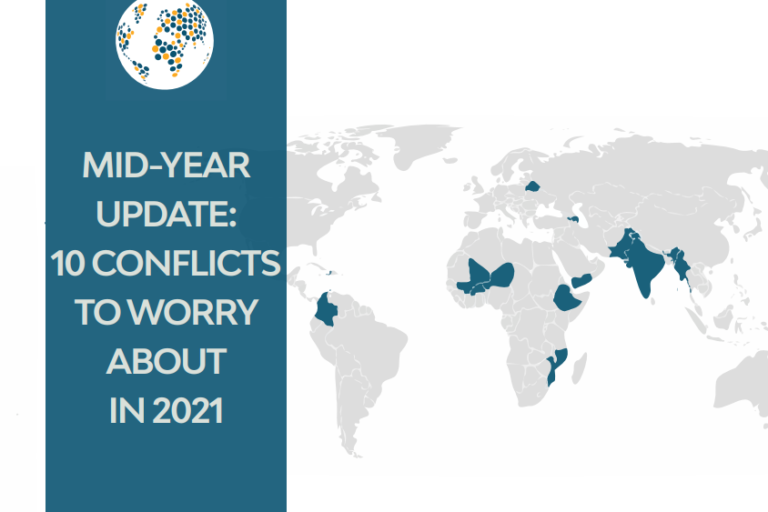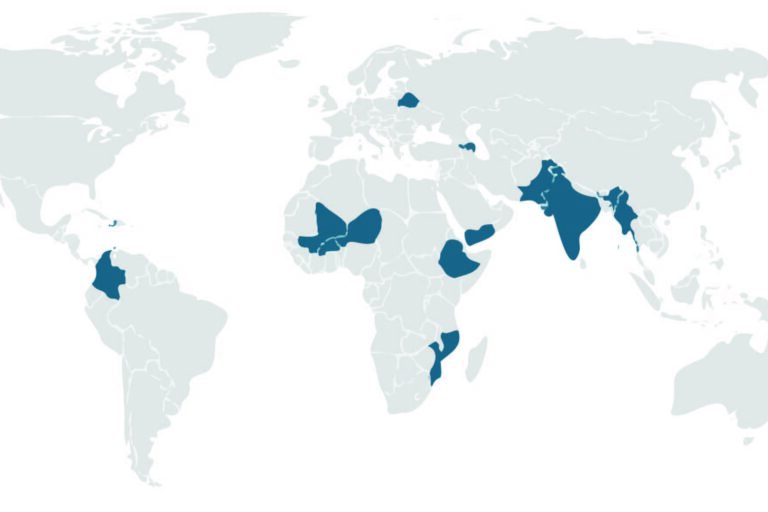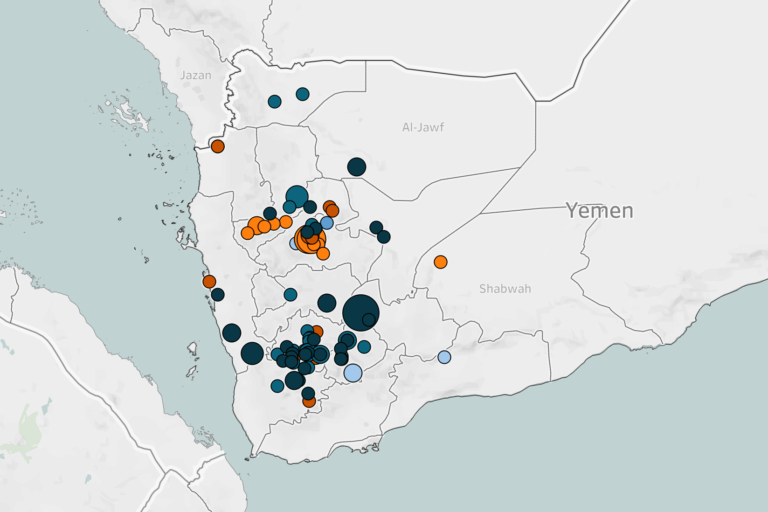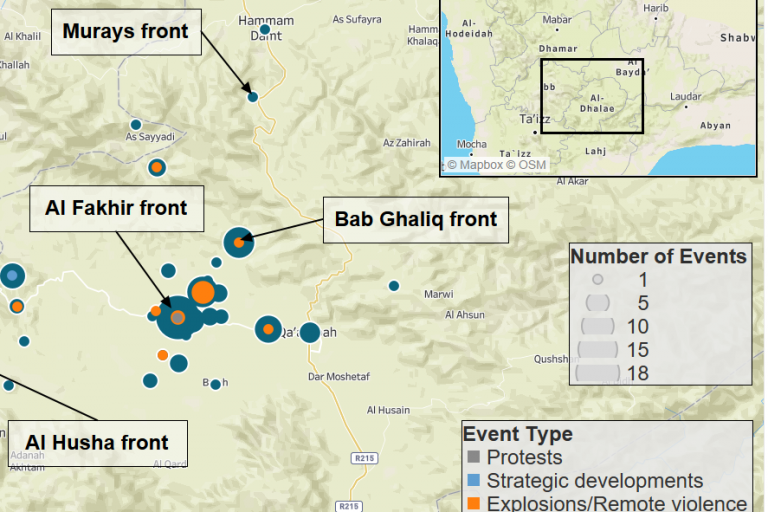As the country’s complex conflict landscape continues to evolve, and with the prospect of a political settlement on the horizon, ACLED has established the Yemen Conflict Observatory (YCO), a new platform offering an array of analytical tools and products to help users stay up-to-date with the latest developments. The YCO is a living hub that combines data-driven analysis with robust qualitative assessments of political violence and disorder to enable greater awareness of how the status quo is shifting, complemented by providing a deeper contextual understanding of the conflict environment.
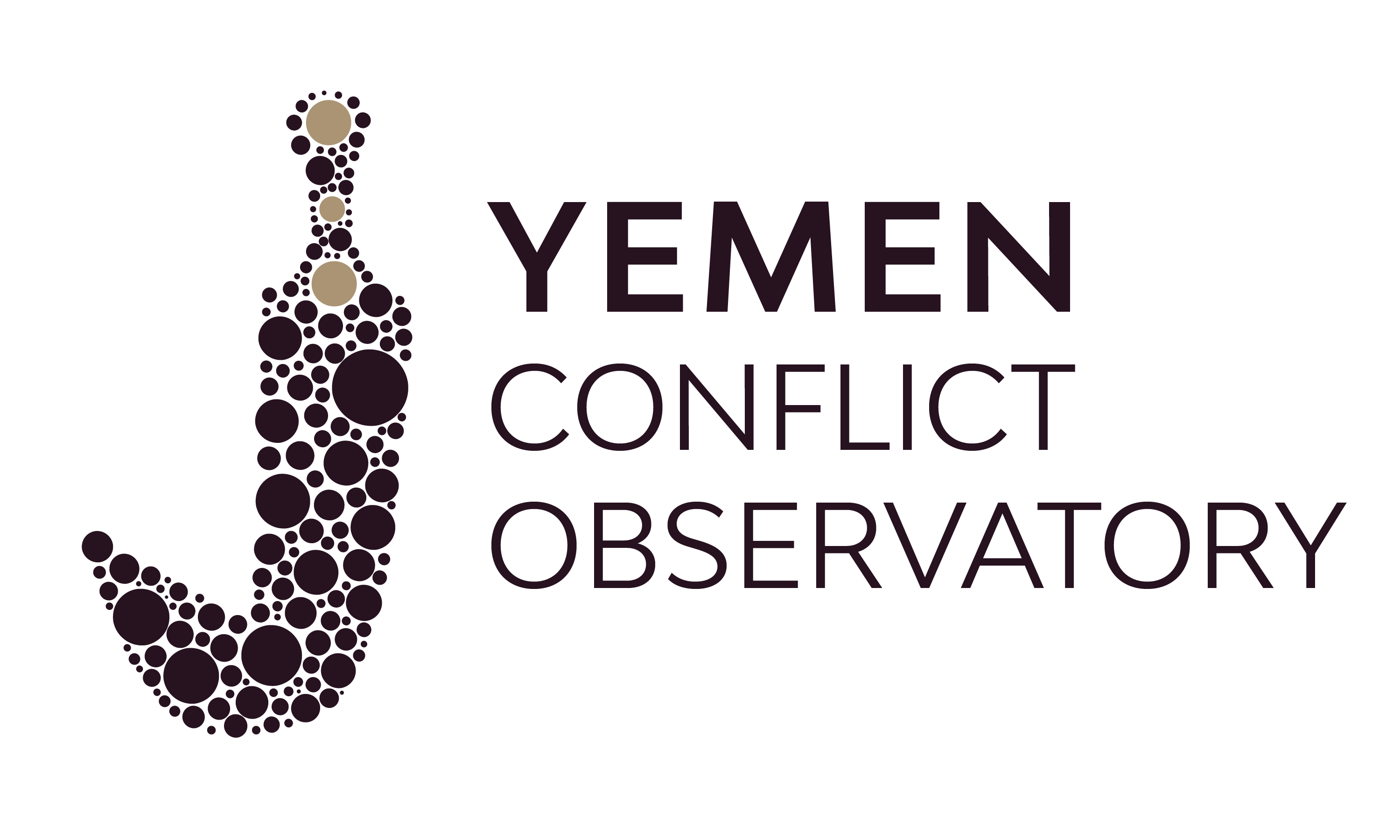
Background
In 2022, the war in Yemen entered a new phase. Hostilities subsided after a six-month truce took effect in April and have remained limited despite the truce officially lapsing that October. Nonetheless, violence continues to take place across the country. Infighting among armed groups, flare-ups of tribal violence, and heightened repression have all contributed to sustained unrest. This ongoing violence demonstrates the multi-faceted nature of the conflict environment in Yemen, which continues to evolve. While ultimately bound to local developments rooted in the country’s turbulent history, these conflict dynamics have also become increasingly intertwined with regional and international factors.
With growing potential for a political agreement amid reports of progress in talks among officials in Sanaa and Saudi Arabia, widespread access to holistic and cross-cutting data-driven analysis is more necessary than ever to fill critical knowledge gaps. Even a comprehensive ceasefire between the Saudi government and the Houthis will be unlikely to address the multitude of tensions across the country, many of which precede the conflict that erupted in 2015. Yemen remains one of the world’s most complex and severe conflict environments, making timely and reliable information on violence patterns, drivers, and agents an imperative to inform realistic dialogue and negotiation at all levels, allow for conflict-sensitive and effective program design, and bolster accountability.
What is the YCO?
The YCO serves as a “living hub”: an online platform providing an array of analytical tools and products to help users keep up to date with the latest developments. The YCO combines data-driven analysis with robust qualitative assessments of political violence and disorder to enable greater awareness of how the security situation is evolving, complemented by providing a deeper contextual understanding of the conflict environment.
YCO Outputs
The YCO includes an interactive map of Yemen, updated weekly, displaying incidents and fatalities over a set period of time, with a number of filters so that users can focus on areas of interest. It additionally features multiple monitors designed to track key thematic developments; and connections with ACLED’s conflict forecasting and early warning tools to identify potential escalation hotspots across Yemen.
In addition, regular analysis of political violence in Yemen is provided in the form of monthly thematic reports summarizing recent conflict trends and developments, diving deeper into topics of interest and relevance, accompanied by an interactive timeline map highlighting key flashpoints. These are supported by a library of actor profiles, providing backgrounds on the composition, behavior, and agendas of key national and sub-national political, military, and security actors, as well as regional profiles. Actor and regional profiles are accompanied by interactive maps and territorial control maps.
Yemen Conflict: Interactive Map
The dashboard maps political violence events in Yemen, and related events in Saudi Arabia, since the onset of the regional conflict in March 2015. Data can be filtered by date and event type, and additional monitoring tools allow for exploration of key subsets of the data: border violence, attacks on markets and checkpoints, and attacks on healthcare and education sites.
For further data exploration, see our interactive maps covering Red Sea Attacks, or Rocket and Drone Attacks. Regional Profiles feature interactive maps showing events within each region, and Actor Profiles feature interactive maps showing events featuring each actor.
This dashboard encompasses political violence events associated with the Yemen war since the onset of the regional conflict on 26 March 2015. It includes all political violence events in Yemen and only war-related events in Saudi Arabia and the UAE. By default, the map displays data for the period beginning with the UN-mediated truce, on 2 April 2022, up to the most recent week.
Filters on the left allow users to define a time range and analyze trends in more detail. It is possible to focus on specific governorates of Yemen and obtain ‘Admin 1’-level statistics by clicking on the relevant areas on the map. The monitors on the bottom of the dashboard provide a focus on three aspects: events occurring at market and checkpoint areas; border region events; and events involving the usage of drones and rockets.
Methodology
Markets and Checkpoints monitor
This monitor shows market events and checkpoint events, defined as political violence events occurring at markets and at or in the proximity of checkpoints, respectively.
Border Violence monitor
This monitor covers events in the ‘border region,’ delineated as the area that stretches 20 kilometers on either side of the Saudi-Yemeni border. Border region events are defined as political violence events occurring in the border region area. Additional conditions, including involved actors, concur to determine if events with unclear locations can be considered in the border region. Further coding decisions about border violence are outlined in the Events on the Saudi-Yemeni border section of the Yemen public methodology.
Healthcare and Education monitor
This monitor shows events related to healthcare and education. Specifically, Healthcare events are defined as events affecting the healthcare infrastructure, and its personnel and users, either intentionally or unintentionally. Similarly, education events are ones affecting the educational infrastructure, its personnel, and its users, either intentionally or unintentionally.
CAST (Conflict Alert System)
The ACLED Conflict Alert System (CAST) is a global prediction tool that forecasts the number of political violence events in every country around the world.
The CAST tools integrated into the YCO platform are focused specifically on Yemen. These tools are updated monthly and offer forecasts for the following month relative to a six-month average. The YCO includes three distinct CAST tools:
The Map highlights Yemen’s governorates (‘Admin 1’) where a significant increase or decrease in the number of events is forecasted for the following month. Hovering over each ‘Admin 1’ reveals a tooltip displaying the governorate’s name, percentage change, and number of forecasted events. If the average number of recorded events over the previous six months is fewer than two, the ‘Admin 1’ is labeled as “low variation” and marked in gray.
The Table displays the ‘Admin 1’ name, number of forecasted events, six-month average, and percentage change.
The Pie chart displays the distribution of event types (‘Battles’, ‘Explosions/Remote Violence,’ and ‘Violence Against Civilians’) based on the number of forecasted events.
Forecasted Change from 6 Month Average
Forecasts by ADMIN1
Forecasted Event Type Distribution
Curated Data
The YCO curated data file includes all political violence events and disrupted weapons use/interception events in Yemen, as well as Houthi-involved events in Saudi Arabia and the UAE, since 26 March 2015.
Consult this file for all ACLED data in Yemen:
Yemen ( 27 June 2025 )
Reports & Analysis
FEATURED | 4 March 2025
A barometer of Houthi repression: Governance and infighting in Ibb governorate
Away from the high waters of the Red Sea, where they waged hundreds of attacks on commercial shipping, inside Yemen, the Houthis are grappling with growing domestic unrest.
Sign up for Yemen Conflict Observatory updates
Inside ACLED’s work on the Yemen conflict
ACLED’s Yemen Conflict Observatory navigates a complex media landscape, cross-checking Arabic-language sources, verified social media, and local partner insights to provide the most reliable picture of political violence.
ACLED’s Senior Analyst for Yemen, Luca Nevola, breaks down the key challenges of collecting reliable conflict data.




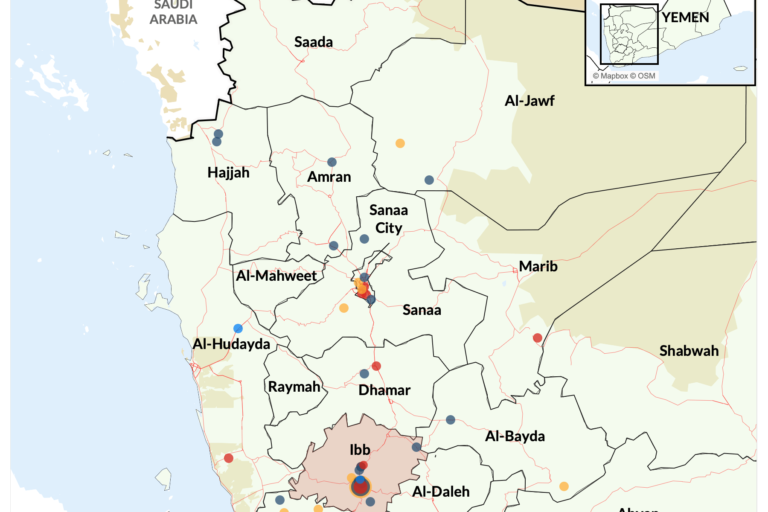
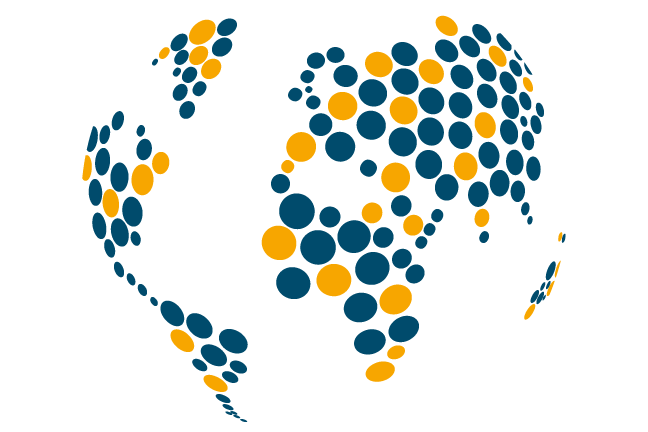
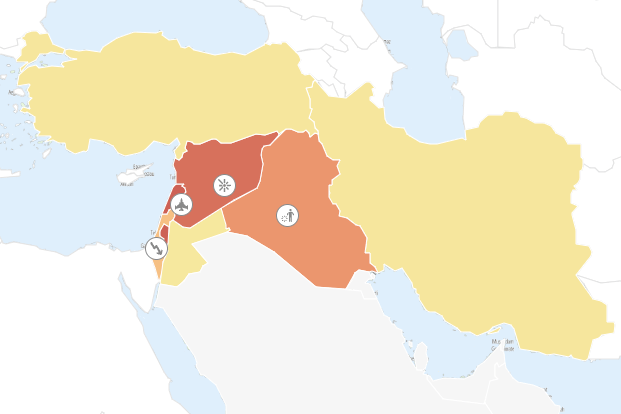



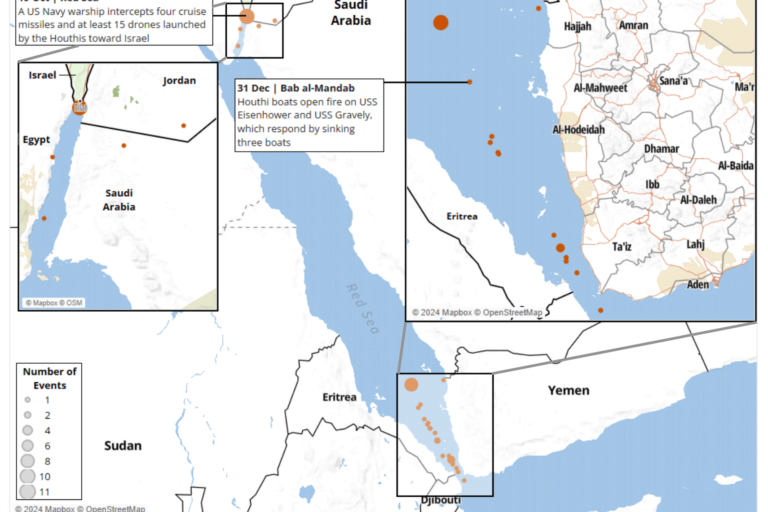




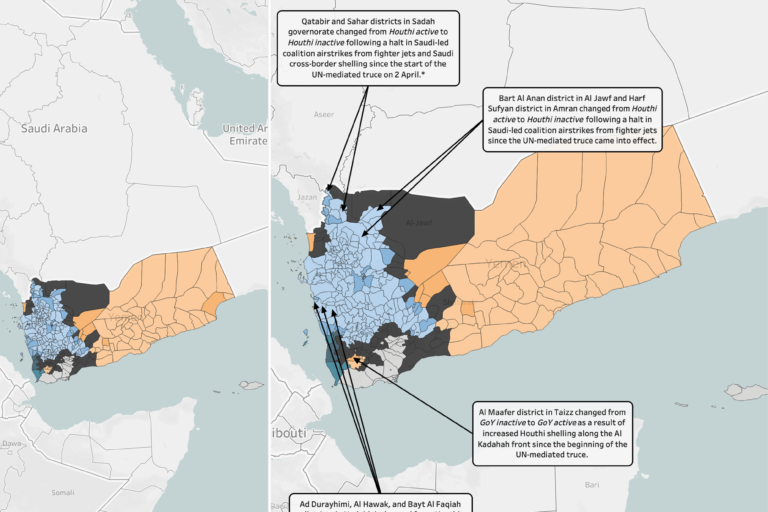








![Yemen[dash]](https://acleddata.com/acleddatanew/wp-content/uploads/2021/08/Yemendash-1-768x512.png)

